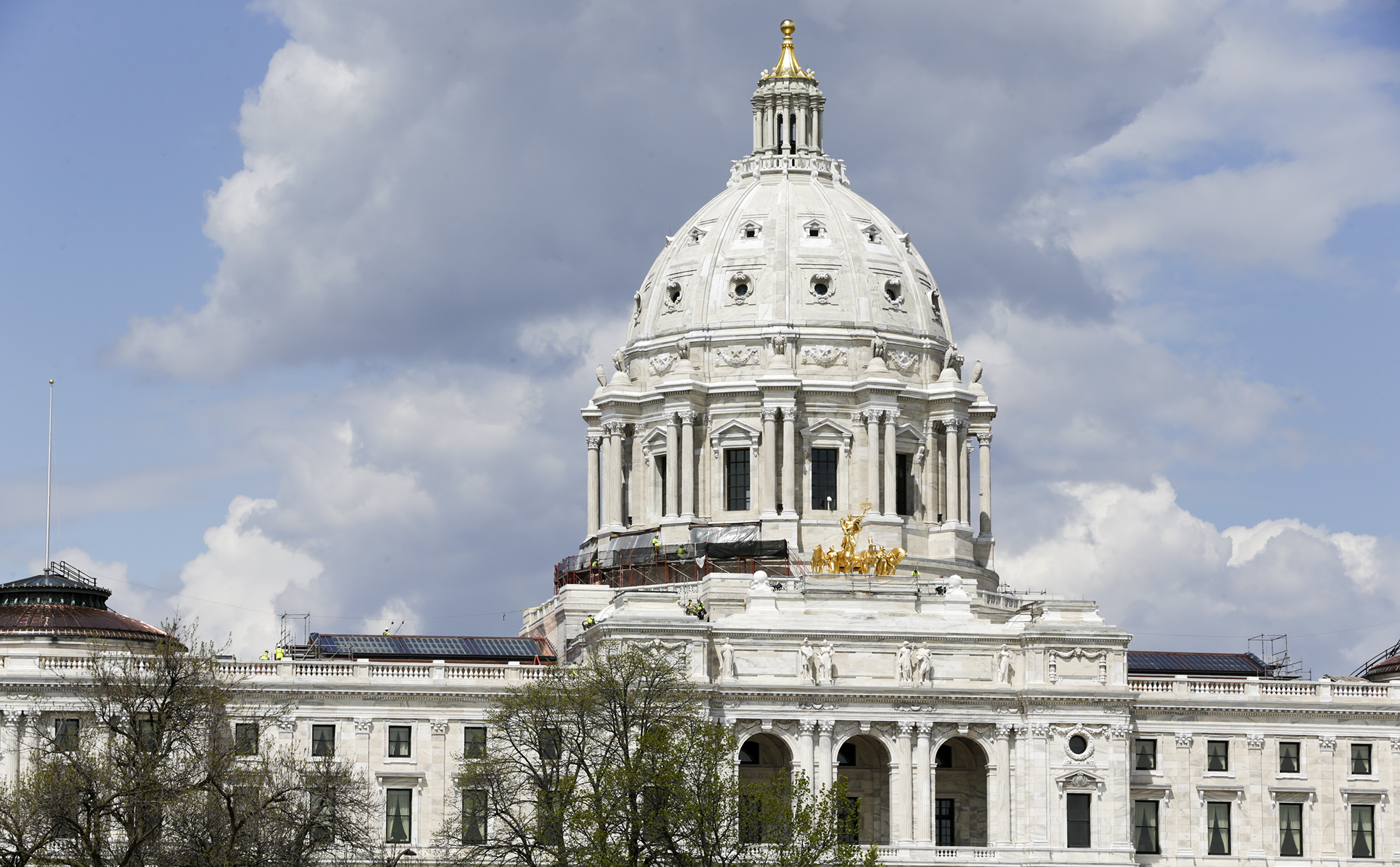Legalized sports betting back on track as session reaches home stretch

The phrase “down to the wire” comes from horse racing, where it was long the practice to stretch a wire across and above the track at the finish line.
The saying is also a timely and apt descriptor of a bill approved Friday by the House Ways and Means Committee that would legalize sports betting in the state while prohibiting some gambling devices at horse racing tracks, all with just six legislative — and 10 calendar — days remaining in the session.
By a voice vote, the committee adopted a delete-all amendment to put the language of HF2000 (sports betting) into the underlying language of HF5274 (horse track regulations). A split-voice vote sent the combined package to the House Floor.
Legalizing sports betting
Rep. Zack Stephenson (DFL-Coon Rapids) sponsors both bills and says legalizing sports betting is the best way to combat the burgeoning illicit black market that already exists in the state.
“It is unlawful to engage in sports betting in Minnesota today, and it happens every single day in extreme amounts. We will be transitioning people from the black market into a legitimate marketplace.”
By doing so, Stephenson said, the state would collect taxes on all sports wagers, which would both benefit the state’s bottom line and be used to run programs to treat problem gamblers.
The bill would grant sports betting licenses to the 11 tribal nations in Minnesota and permit those ages 21 and older to bet on a variety of athletic events, including esports. Wagers would be allowed at brick-and-mortar locations on tribal lands or using mobile apps licensed to tribal entities.
Wagers could not be placed on horse racing or youth sports but would be allowed on certain kinds of fantasy contests.
A tax would be imposed on sports betting net revenue equal to 20% of wagers placed online through a website or mobile application. Bets placed on tribal land would be exempt from the proposed tax.
[MORE: View the spreadsheet]
Stephenson said the bill would prohibit betting on horse races because doing otherwise would jeopardize the economic viability of Minnesota’s two horse racing tracks, which are already struggling due to the shrinking purses they are able to pay out.
Portions of the tax revenue collected would be used to fund purse supplements of $625,000 annually at the tracks: 72% would go to Canterbury Park and 28% to Running Aces.
Despite steps taken to protect horse racing in the state, including the funds to supplement purses, Rep. Brian Pfarr (R-Le Sueur) said legalizing sports betting would deal a big blow to both tracks. “That’s not enough, because if those business are gone, it doesn’t matter.”
Appropriations
The bill would appropriate $8.32 million in fiscal year 2025 to the Department of Public Safety to perform duties required to establish and regulate mobile sports betting and fantasy contests. Future appropriations would be $5.49 million in fiscal year 2026 and $5.47 million annually beginning in fiscal year 2027.
[MORE: View fiscal analysis]
Regulating gambling at horse racing tracks
The bill would specify that “historical horse racing” machines are gambling devices and therefore not allowed at Canterbury Park and Running Aces.
Stephenson said these machines are “essentially slot machines” because of the random nature of the payouts. By law, slot machines can only be situated on tribal lands.
Historical horse racing is an electronic gambling product that allows players to bet on random replays of previously run races, using terminals that typically resemble slot machines. Identifying information such as the location and date of the race, and the names of the horses and jockeys, is not shown.
A player wagers money without being able to handicap the race, which Stephenson said makes the payouts random, like slot machines.
Related Articles
Search Session Daily
Advanced Search OptionsPriority Dailies
Ways and Means Committee OKs House budget resolution
By Mike Cook Total net General Fund expenditures in the 2026-27 biennium will not exceed a hair less than $66.62 billion.
That is the budget resolution approved Tuesday by the House Ways...
Total net General Fund expenditures in the 2026-27 biennium will not exceed a hair less than $66.62 billion.
That is the budget resolution approved Tuesday by the House Ways...
Minnesota's budget outlook worsens in both near, long term
By Rob Hubbard It looks as if those calling for less state spending could get their wish, judging from Thursday’s release of the February 2025 Budget and Economic Forecast.
A state su...
It looks as if those calling for less state spending could get their wish, judging from Thursday’s release of the February 2025 Budget and Economic Forecast.
A state su...